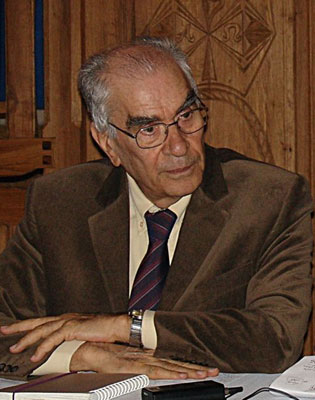In the experience of the Church we find two ways to carry out this ascetic struggle: as service to man (i.e. social activity), and monastic asceticism, where one works to overcome those obstacles, those points of resistance which prevent one from communicating with God and with others. These two paths have in reality the same goal. Evagrius Ponticus defined it very well when he said that the Christian, and above all the monk, is separated from others in order to be united with all. Sadly, in the society in which we live, our manner of living excludes these two paths. We should become aware that we are living a paradox. On the one hand, we declare that we are members of the Church, that is, of a living body, while on the other our situation is such that our daily existence presupposes the absolutization of the individual. We live today on the basis of the rights of the individual and give an absolute priority to individual consumption. And so even theology has become a knowledge about something. We are filled with information about God. But what defines theology in the Church is concrete knowledge of God himself, the experience of faith, which does not mean the possession of particular individual convictions. In Greek the word “faith” (pistis) still preserves its original sense of confidence, of trust. To have faith means to give oneself, to offer oneself with an absolute trust in God and in that “other” whom we love. The two gospel figures, the Publican and the Pharisee, are fundamental for an understanding of what I am trying to express by the word “person”. The Pharisee, as a religious type, is satisfied with himself, absolutely faithful to the Law and self-sufficient. He has no need of God. That is why he is excluded from the Kingdom. The other, the Publican, can offer neither virtue nor good works. He is a sinner. He pays no attention to his personal strength, so all he has is his relationship with someone whom he loves. And he gives himself over to that love.
Information about God

…we do have a small request. More and more people visit Orthodoxy and the World website. However, resources for editorial are scarce. In comparison to some mass media, we do not make paid subscription. It is our deepest belief that preaching Christ for money is wrong.
Having said that, Pravmir provides daily articles from an autonomous news service, weekly wall newspaper for churches, lectorium, photos, videos, hosting and servers. Editors and translators work together towards one goal: to make our four websites possible - Pravmir.ru, Neinvalid.ru, Matrony.ru and Pravmir.com. Therefore our request for help is understandable.
For example, 5 euros a month is it a lot or little? A cup of coffee? It is not that much for a family budget, but it is a significant amount for Pravmir.
If everyone reading Pravmir could donate 5 euros a month, they would contribute greatly to our ability to spread the word of Christ, Orthodoxy, life's purpose, family and society.













